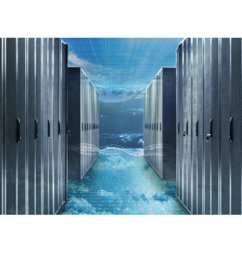| Supercomputing MOOC on Future Learn |
| Written by Sue Gee |
| Tuesday, 16 January 2018 |
|
A free Supercomputing MOOC designed for anyone interested in leading-edge computing technology or the role that computer simulation takes in modern science and engineering restarted on Future Learn on January 15th, 2018. The five-week course comes from EPCC, formerly the Edinburgh Parallel Computing Centre, and is taught by David Henty who has been working with supercomputers for over 25 years, and teaching people how to use them for almost as long. It aims to let participants discover how supercomputers work and the real-life scientific breakthroughs made possible by today’s computer simulations over the course of 5 weeks, following the Future Learn patten of presenting the content in small, easily digestible portions. The write up of the first EPCC supercomputing MOOC explains: Each week has a distinct theme, and is further divided into smaller modules called ‘activities’, consisting of a number of ‘steps’. Steps are the smallest units of the course structure and, regardless of their type – article, video, discussion, exercise, quiz or test – should not require more than 20 minutes to complete. Learners can spend as much or as little time on each step as they wish, and do them at any time. In our estimate the week’s worth of content should not take more than 3 hours to complete. Learners are granted access to all of the material at once, which allows them to proceed at their own pace. It also provides the outline of the course: The first week provides a gentle introduction to the world of supercomputing, including some basic terminology, a brief historical overview and descriptions of some of the state-of-the-art machines. The second week focuses on the physical components of supercomputers and how they compare to modern laptops or game consoles. At the end of this week, students should appreciate why we use thousands of standard CPUs rather than creating one super-CPU that is thousands of times faster. In week three we discuss how to make use of all of these computing cores, covering topics of parallel programming and parallel performance. Week four is about computer simulations, with weather modelling used to illustrate the concepts and life cycle of computer simulations. Finally, week five presents three examples of research conducted on supercomputers: Illustris, the biggest cosmic simulation ever; the Blue Brain project, an attempt to create a digital reconstruction of the brain; and discovering new materials. We also talk briefly about possible future developments. Reporting on the original presentation in March 2017, Weronika Filinger, Applications Developer, EPCC says that while the course was designed to be accessible to as many people as possible, and specific computer knowledge wasn't required many of the participants were well acquainted with the topic: Looking at the self-introductions and various comments, we can distinguish three distinct groups of learners: current/former IT professionals; post-graduate students and academic researchers making use of HPC resources; and the general public. This diversity led to some very interesting conversations between significant numbers of learners. The discussion topics ranged from very technical and in-depth, through general interest questions, to philosophical and ethical considerations. Although not all learners were active in the comment sections, many noted that they benefited from following other learners’ conversations. She also has some interesting stats: 3,263 people registered for the course and 1,721 people accessed the content, which is a typical conversion rate for FutureLearn. Due to its rather specialist nature, ours was quite a small course by FutureLearn standards. However, those smaller numbers allowed for more interactions between the educators and learners and, possibly more importantly, between learners. The course which is now in seesion is the third time it has run and you can enrol in advance with two options, Free and Upgrade. The free option gives you access to the course for its duration plus 2 extra weeks but without access to the course test. If you upgrade for £62, which you can do at any time while the course is in progress, you have unlimited access to it and a Certificate of Achievement when you complete the course and pass the course tests. What you can expect it to cover is:
All of the technical aspects will be covered at a conceptual level and there is no requirement to be able to write computer programs. However, anyone with existing programming experience will learn how programming modern supercomputers differs from programming a home PC. More InformationRelated ArticlesRaspberry Pi For Teachers on Future Learn Keeping Track of Computer Science Courses To be informed about new articles on I Programmer, sign up for our weekly newsletter, subscribe to the RSS feed and follow us on Twitter, Facebook or Linkedin.
Comments
or email your comment to: comments@i-programmer.info |
| Last Updated ( Friday, 04 May 2018 ) |



